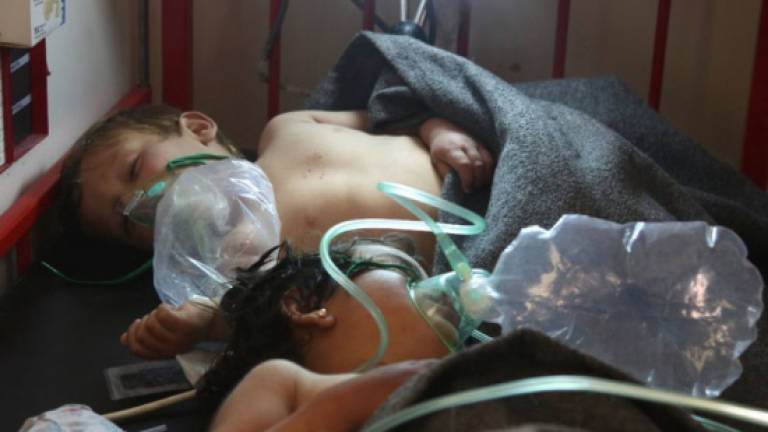Britain urges Putin to end support for 'toxic' Assad

LONDON: Russia should end its support for "toxic" Syrian President Bashar al-Assad, British Foreign Secretary Boris Johnson said on Monday ahead of a meeting of G7 foreign ministers in Italy.
"It's time for (Russian President) Vladimir Putin to face the truth about the tyrant he is propping up," Johnson said, according to a foreign ministry spokeswoman.
"We need to make it clear to Putin that the time to back Assad has gone," he said, warning that Putin was "damaging Russia" by supporting Assad.
"He must understand that Assad is now toxic in every sense. He is poisoning the innocent people of Syria with weapons that were banned 100 years ago – and he is poisoning the reputation of Russia," he said.
Johnson on Saturday cancelled a scheduled visit to Moscow over its support for the Syrian regime.
The move came after a suspected chemical weapons attack on the rebel-held town of Khan Seikhun last week in which at least 87 people were killed.
The United States launched a missile strike on a Syrian airfield on Friday in its first military action against Assad in retaliation for the attack.
Foreign ministers from the Group of Seven main industrialised countries are meeting in the Italian town of Lucca later on Monday before US Secretary of State Rex Tillerson flies to Moscow on Tuesday.
"There's no doubt the US action is a game-changer in Syria. We need to make it clear to Putin that the time to back Assad has gone," Johnson said on Monday.
Russia's foreign ministry earlier condemned Johnson's decision not to come to Moscow, saying it showed that Britain had "no real influence on the course of international affairs".
Moscow has sought to deflect blame from its long-time ally Assad over the suspected gas incident and says Syrian jets struck a rebel arms depot where "toxic substances" were being put inside bombs.
More than 320,000 people have been killed in Syria since the conflict erupted in March 2011 with anti-government demonstrations.
Poison gas was extensively used in the Western Front in the 1914-18 World War I from 1915.
It was outlawed internationally by the 1925 Geneva Protocol, which entered into force in 1928. — AFP